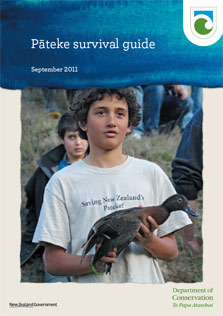Hunters
Wildlife Protection – The Game Bird Hunters Perspective
Gamebird hunting is an activity, which has existed in New Zealand since the arrival of the early European settlers. These early settlers brought with them not only their English heritages, but also a need to hunt for food.
The primary instinct for the early settler was to provide sustenance until such time as local colonies were self sufficient and dependable. The establishment of strategically placed towns and settlements, soon it became clear that this new country would be greatly suited to the introduction of new animals which could be hunted not only as a food source but also provide a means of recreation.
So began the age of species introductions through the Acclimatisation Societies, which was to herald changes to both the native plant and animal species. Gamebird introductions seemed the easiest way for the early immigrants to establish what is today’s gamebird resource. Whilst the majority of these introductions were useful others weren’t quite so predictable. The introduction of mustelids, cats and possums etc was unwittingly going to herald a new age for native animal species.
The inability by the early settlers to recognise the destruction that would occur with the liberation of these new animal species, unfortunately spelled disaster for a lot of this New Zealand’s native bird species and including waterfowl.
Today’s legacy from those liberations has placed a heavy toll on the remaining endangered waterfowl species. Species such as Brown Teal and the Blue duck remain in a state of being extremely rare or threatened due to the overwhelming presence of ruthless predators.
Today the gamebird hunter through Fish & Game are very much involved in the active role of recreating and re-establishing lost habitat, and has actually created areas of restitution where threatened and endangered birds can coexist and recover.
The recognised need for constant predator control and habitat management and gamebird hunters remain a leading conservation group with the recovery and management of waterfowl species.
The very act of harvesting a resource has in affect created a conservative side to this recreation. The New Zealand hunter annually contributes money from their licence purchase, which goes automatically towards the New Zealand Gamebird Habitat Trust, which releases funds to create and restore wetland habitats throughout the country.
Worldwide the hunting fraternity is buying and restoring more areas of significant importance to bird species than any other organisation. A century of habitat degradation through human development has played a major role in today’s environmental situation.
While opposition to waterfowl hunting is ongoing the fact remains that active management of any species is certainly ensuring a viable healthy population for generations to come.

